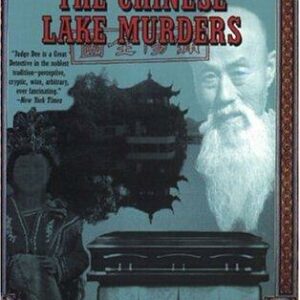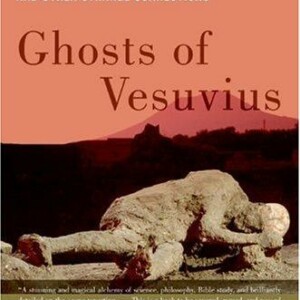Strange Glory
$20.00
| Title | Range | Discount |
|---|---|---|
| Trade Discount | 5 + | 25% |
- Description
- Additional information
Description
Winner, Christianity Today 2015 Book Award in History/Biography
Shortlisted for the PEN/Jacqueline Bograd Weld Award for Biography
In the decades since his execution by the Nazis in 1945, Dietrich Bonhoeffer, the German pastor, theologian, and anti-Hitler conspirator, has become one of the most widely read and inspiring Christian thinkers of our time. With unprecedented archival access and definitive scope, Charles Marsh captures the life of this remarkable man who searched for the goodness in his religion against the backdrop of a steadily darkening Europe. From his brilliant student days in Berlin to his transformative sojourn in America, across Harlem to the Jim Crow South, and finally once again to Germany where he was called to a ministry for the downtrodden, we follow Bonhoeffer on his search for true fellowship and observe the development of his teachings on the shared life in Christ. We witness his growing convictions and theological beliefs, culminating in his vocal denunciation of Germany’s treatment of the Jews that would put him on a crash course with Hitler. Bringing to life for the first time this complex human being—his substantial flaws, inner torment, the friendships and the faith that sustained and finally redeemed him—Strange Glory is a momentous achievement.“[A] masterly and comprehensive new biography . . . The matter of the legacy of Dietrich Bonhoeffer is at once straightforward and immensely complicated . . . From such extravagant pluralism, can there be any coherence? Marsh suggests possible answers, but does so in a restrained and non-dogmatic fashion that seems appropriate to the evidence . . . and thus provides ample resources for readers to arrive at conclusions at odds with his own.”
—James Nuechterlein, The New Criterion
“This splendid biography . . . [provides] a rich and detailed account of how Bonhoeffer’s immensely eventful life unfolded – the personal, intellectual, and spiritual journey . . . [and does] much to sustain Bonhoeffer’s stature as theologian, pastor, and martyr . . . The witness that Bonhoeffer bore through his life has lost none of its power to illuminate, instruct, and challenge.”
—Andrew J. Bacevich, Commonweal
“Brilliant . . . [Marsh] uses previously unavailable archives to show us a very different Bonhoeffer . . . [and] strikes several notes . . . which other biographers have not adequately emphasized . . . This Bonhoeffer is profoundly human . . . [A] beautifully written biography.”
—Joel Looper, Los Angeles Review of Books
“Elegant, harrowing, awe-inspiring, and sermonic . . . Marsh [demonstrates] how the separate, parallel lines of Bonhoeffer’s role as monastic abbot and advocate of prophetic, progressive political action and his role as friend to Bethge and music-loving bon vivant did eventually merge . . . [A] splendid biography.”
—Wesley Hill, Books & Culture
“[Marsh] renders Bonhoeffer’s life and thought in exquisite detail and with sympathetic understanding . . . [and] guides his narrative with a steady hand . . . here the paradox of a believer in the face of evil fully comes into focus . . . we see Bonhoeffer’s transformation from pampered scion and theological dilettante to energetic churchman and Christian martyr, all against the backdrop of cataclysmic changes in Germany.”
—Randall Balmer, The New York Times Book Review
“Truly beautiful and heartbreaking . . . [Marsh] has a rare talent for novelistic detail – which requires a genuine creative imagination as well as scrupulously documented research . . . (the notes alone are a treasure of information) . . . [and] very properly emphasizes the importance of [Bonhoeffer’s] volatile, visionary thoughts . . . It’s inspiring to almost feel Bonhoeffer slipping verses or notes of comfort into the sweaty hands of fellow prisoners either coming or going from torture . . . [An] excellent biography . . . a splendid book . . . [and] one hell of a story.”
—Christian Wiman, The Wall Street Journal
“Paints a painstaking portrait of a faithful disciple . . . will help you grapple with the eccentric Bonhoeffer of history . . . [with an] exquisite eye for detail . . . [Marsh] makes a convincing case that by 1933, Bonhoeffer was the most radical and outspoken opponent of Nazi church policy . . . [a] welcome biography.”
—Timothy Larsen, Christianity Today
“A definitive study of Bonhoeffer’s life . . . erudite and humanizing. . . Marsh sagely counters all of today’s polemical heat with more historical context . . . It is this Bonhoeffer, and not the culture-war stick-figure . . . who embodies an example of spiritual witness that we desperately need today . . . Thank God for Charles Marsh’s Strange Glory.”
—Ann Neumann, Bookforum
“Beautiful . . . Marsh displays both how strangely human and how gloriously blessed Bonhoeffer’s life was . . . The theological seeds that gave rise to America’s Civil Rights Movement were scattered in Germany a generation before they began to bear fruit here.”
— Jonathan Wilson-Hartgrove, Patheos
“A biographical triumph . . . A moving, melancholy portrait . . . With both empathy and a critical eye, Marsh traces Bonhoeffer’s mercurial existence . . . [and] depicts a talented and tortured theologian and pastor who might inspire us to look beyond traditional or simplistic answers to those important questions.”
—John G. Turner, The Christian Century
“[A] worthwhile new biography . . . Bonhoeffer was a genuinely beloved pastor . . . [who] practiced what he preached, at great personal cost . . . he was a true Christian.”
—Mark Movsesian, First Things
“Attempts to provide a more closely examined view of Bonhoeffer’s personality than past biographers . . . using rarely glimpsed correspondence to paint a warts-and-all portrait of this German martyr . . . No doubt Marsh’s portrayal will infuse new controversy into discussions about Bonhoeffer for years to come.”
—Kirkus Review
“Exemplary history . . . Marsh, making the personal political and the political personal, captures Bonhoeffer’s efforts to achieve a ‘nonreligious interpretation of faith’ that embraces Jesus as ‘the man for others’ and then adroitly places him within the larger context of the era.”
—James R. Kelly, America
“A masterpiece of a biography . . . Well written, thoughtful, provocative at times . . . Especially poignant is the way [Marsh] takes us deep into the humanity of the great theologian . . . It will take its place among the standard interpretations of Bonhoeffer’s life.”
—Robert Cornwall, Ponderings on a Faith Journey
“[A] splendid biography . . . seamlessly combines a novelist’s narrative with a biographer’s insights . . . stands as one of those rare books that both inspires and informs as Marsh offers a discerning appreciation of Bonhoeffer’s brief but rich and faith-filled life.”
—Judith Chettle, Richmond Times-Dispatch
“[A] masterpiece . . . deserves the widest possible readership . . . [Marsh] is perfectly placed . . . to tell Bonhoeffer’s life story . . . Right up to the end, [he] is by his readers’ side, clarifying and clearing away the too-pretty details that always accrue to a saintly life.”
—Steve Donoghue, Open Letters Monthly
“A hero never more vividly human; a founder of critical belief, never more faithful; Dietrich Bonhoeffer, in Charles Marsh’s elegant biography, comes powerfully to life for a new era. Just in time.”
—James Carroll, Author of Christ Actually: The Son of God for the Secular Age.
“A marvelous biography, a page-turner, beautifully written. Strange Glory not only makes Dietrich Bonhoeffer come alive, but also offers us an intimate and very perceptive look into his mind and spirit. Charles Marsh confronts the complexities of Bonhoeffer’s resistance to the Third Reich with an unsentimental eye, allowing us to see why this martyred pastor and theologian has so much to offer to our increasingly godless world.”
—Carlos Eire, T. Lawrason Riggs Professor of History and Religious Studies, Yale University; author of Waiting for Snow in Havana, winner of the National Book Award
“An extraordinary account of an extraordinary life, Charles Marsh’s Strange Glory is profoundly researched and vividly imagined. Marsh has unearthed enough archival material to keep generations of Bonhoeffer scholars occupied, but, more important, has used his knowledge to weave a mesmerizing tale about one of the giants of the twentieth century. I can’t remember when I have read a more compelling biography.”
—Alan Jacobs, professor of the humanities at Baylor University and author of The Book of Common Prayer
“As Bonhoeffer’s doomed quest unfolds, the experience of reading Strange Glory is by turns terrifying and exhilarating. A story of profound thought and heroic action told in crystalline prose, this is a marvelous biography.”
—James Tobin, author of Ernie Pyle’s War and The Man He Became: How FDR Defied Polio to Win the Presidency (winner of the National Book Critics’ Circle Award)
“Marsh succeeds in fulfilling one of the methodologically very challenging demands of modern studies on resistance. Regime opponents are always asked about their entanglement in the regime. But rarely do historians inquire how opponents—by experiencing the reality of Nazi Germany and its looming atrocities—managed to overcome certain political positions they initially shared with the national socialists.”
—Frankfurter Allgemeine Zeitung
“The life, thoughts and deeds of Dietrich Bonhoeffer inspire people all over the world. All those people will be drawn to this biography by the prominent theologian and acclaimed writer Charles Marsh, whose meticulous knowledge of the Bonhoeffer story and its sources infuses such a vivid narrative.”
—Wolfgang Huber, former Chairman of the Council of the Evangelical Church in GermanyCharles Marsh is a professor of religious studies at the University of Virginia and director of the Project on Lived Theology. He is the author of seven previous books, including God’s Long Summer: Stories of Faith and Civil Rights, which won the 1998 Grawemeyer Award in Religion. Of Marsh’s earlier volumes Reclaiming Bonhoeffer, the late Eberhand Bethge, Bonhoeffer’s closest friend and first biographer, wrote: “This book is a theological sensation—an exciting event. Nobody who attempts to define Bonhoeffer’s legacy today will able to ignore Marsh’s book.”Marsh was a recipient of a Guggenheim fellowship in 2009 and the 2010 Ellen Maria Gorrissen Berlin Prize fellowship at the American Academy in Berlin. He lives in Charlottesville, Virginia.chapter one
1906–1923
Eternity’s Child
When he was a young child, and his family rented a sprawling villa near the university clinics in Breslau, Dietrich Bonhoeffer and his twin sister, Sabine, lay awake at night trying to imagine eternity. The ritual eventually became a game, with each child concentrating on the word to clear the mind of distractions. And on funeral days, as horse-drawn hearses approached the cemetery that lay just to the north, the twins would watch from their bedroom window.
Eternity. Ewigkeit.
Sabine found the word “very long and gruesome.” Dietrich found it majestic: an “awesome word,” he called it.
Sometimes he would picture himself on his deathbed, surrounded by family and friends, reclining on the threshold of heaven. He knew what his last words would be and sometimes rehearsed them aloud, though he dared not reveal them to anyone.He hoped to welcome death as an expected guest—he did not want to be taken by surprise. But, sometimes, when he went to bed convinced that death would come that very night, he would grow light-headed, and the walls of his bedroom would reel about, as if he were at the axis of a carousel. He imagined himself rushing from sister to brother, from father to mother, pleading for help. The prospect of its happening now—of his vanishing tonight into the vast mysterium—felt so real he had to bite his tongue to reassure himself that he was still among the living. That he could feel mortal pain. At such moments, he worried that he suffered from an “incurable fear.”
When the twins got separate bedrooms they devised a code for keeping up their metaphysical games. Dietrich would drum lightly on the wall with his fingers, an “admonitory knock” announcing that it was time once again to ponder eternity. A further tap signaled a new reflection on the solemn theme, and so it went, back and forth, until one of them discerned the final silence—usually it was Dietrich. And with the game concluded, he lay awake, the only light in his room coming from a pair of candle-lit crosses his mother had placed atop a corner table. “When at night I go to bed, fourteen angels round my stead,” he would hear her sing. He liked the idea very much: one angel “dressed in a little white cloak,” standing by his bed, and others watching over children everywhere.
Dietrich believed the nightly ritual spared him from “being devoured by Satan,” Sabine later wrote, though there are few references to Satan in her brother’s adult writings, early or late. Ultimately, death would enthrall more than it frightened, and the devil would frighten him hardly at all. “God does not want human beings to be afraid,” he would one day preach to the congregation in a posh London suburb. God’s only desire is that people “reach out ‘passionately’ and ‘hungrily’ for mercy and love and . . . grace.”
Unlike most Protestant theologians of the twentieth century, Dietrich Bonhoeffer was not the child of a minister. The sixth of eight children (his twin being the seventh), he was born on February 4, 1906, in Breslau, into a family of prodigiously talented humanists, who preferred spending religious holidays in the festive company of relatives and friends rather than in church. “Popguns, soldiers!” he wrote in his first letter to Father Christmas. Over the years he would ask for musical instruments, suits of clothes, fur hats, shirts and ties, trips abroad, shoes for every occasion, and the works of Immanuel Kant and G. W. F. Hegel. His wishes were most often granted.
The family lived at 9 Birkenwäldchen Strasse in the affluent Breslau suburb of Scheitnig. Across the street a narrow park traced the bend in the Alte Oder River south beyond the Dombrücke to the city zoo and Bishop’s Forests; to the north, a path cut through dense pine woods to the cemetery and to the psychiatry and nerve clinic, where Dietrich’s father worked. Sabine recalled a summer afternoon when her twin brother disappeared after the call to dinner. It was during a heat wave in lower Silesia. Dietrich, tanned and sporting “a shock of flaxen hair,” had been larking about in the backyard hoping to ward off the midges. Finally, he took shelter in a garden niche deep in the overgrown field between the rose arbor and the edge of the property. As his nursemaid stood on the veranda, repeating the dinner call, Dietrich paid no mind. Heedless of the heat and the fading light, he was content in the solitude of his secret place in the summer garden.
With its thick walls, narrow windows, and piercing spires, the house stood on the eastern bank of the Alte Oder, off a cobblestone street abutting another narrow wood. Arches and corbels enlivened the brickwork, and touches of Gothic-Baroque appeared in the finials, overhangs, and trussing. A hipped roof and screened-in porch entry, with deep eaves and dormer and eyebrow windows, gave the impression of a Low German farmhouse extending whimsically in every direction.
But for the rose arbor and a small vegetable garden, both carefully tended, the backyard was left to grow wild, according to fashion. Hens and roosters skittered about the yard and across the aging tennis court. Goats and sheep roamed freely in and out of the stables and even into the house when the doors were left open. Dietrich’s mother kept a children’s zoo with “rabbits, guinea pigs, turtledoves, and squirrels,” a terrarium with lizards, and snakes, and “collections of birds’ eggs and mounted beetles and butterflies.” In the shade of a linden tree, Dietrich’s father and older brothers built a tree house on dark piers, a latticework affair with a small stage for skits. One summer, Dietrich helped those same older siblings dig an underground passageway from the arbor to a boulder. Beyond the family’s three acres lay what the neighborhood children called “the wilderness.” There the land rolled softy toward the river and into a bog where they collected algae, worms, lizards, and bullfrogs for their terrariums and things to inspect under their microscopes.
Word that the family was moving to Berlin, more than three hundred kilometers from Breslau, came as a surprise to the children and elicited grumbling in the ranks. In 1912, the year Dietrich turned six, Dr. Karl Bonhoeffer was offered the chair of neurology and psychology at Friedrich-Wilhelms-University in Berlin, a prestigious post overseeing the clinic for nervous and psychiatric disorders. At Breslau, which had numbered Max Born, Erwin Schrödinger, Fritz Haber, and Otto Stern among its many Nobel laureates, his position had been more than respectable. But Berlin offered greater prominence for Karl’s clinical studies—along with a better salary and “more possibilities” for the children’s development. And the metropolis of two million held great potential for cases of hysterics and addiction to study.
At first, the family rented a place on the Brückenallee, a street that no longer exists, near the Tiergarten, the former royal hunting estate that had become a public park, where Dietrich and Sabine might see the kaiser’s children also at play. Four years later, Dr. Bonhoeffer purchased a three-story Gründerzeit-Villa in Grunewald. The suburb had been the brainchild of Otto von Bismarck, the first chancellor of the German empire, who set aside a large parcel of pristine forest to be developed as a residential district. A colony of grand country houses in a variety of architectural styles, Grunewald, or “green forest,” was the ideal rus in urbe, offering rural atmosphere within reach of urban amenities, while keeping the city’s grittier aspects at bay. Scientists, statesmen, and scholars, filmmakers and movie stars, financiers and industrialists, all promenaded along the same leafy boulevards and mingled together at neighborhood soirées. In the summer, canopies of linden and birch shaded the paved streets, and the woodlands to the south seemed to entwine the neighborhood’s generously proportioned blocks. The writer Christopher Isherwood, who in the 1920s rented a flat in a noisy working-class urban district, called Grunewald a “millionaire’s slum.”
The Bonhoeffers warmed to their new home at 14 Wangenheimstrasse. Though smaller than their rented Breslau villa, the house was elegant and lean, built in the style of a classic German country home, with a hip, shingled roof, a bow front dormer, and a clinker brick face on the basement socle. There was also a deep yard, a large veranda facing the garden, and an office suite for Dr. Bonhoeffer’s home clinic. On mild days, music drifting through the open windows could be heard in the garden of primroses and young bracken. “An unobtrusive wealth and an uninhibited taste for pleasure and comfort,” Bonhoeffer wrote in his unfinished autobiographical novel. “It wasn’t so much the importance of the individual object that pleased the eye and warmed the heart as the solicitous care given to the whole.”
Inside, the plain cedar floors, crafted to the highest German standards, were well worn. A “thick, plaited mat covered the parquet floor” in the front hall, there being no need, as the lady of the house, Paula Bonhoeffer, saw it, for children “to run across Persian rugs before they knew how to keep their shoes clean.” The appointments were simple and sturdy throughout, made to last of top-quality wood and fittings. Beyond the foyer was an enormous living room (twenty meters wide, twenty-five meters deep) that the Bonhoeffer family called simply das Zimmer, “the room,” or, if necessary, das grosse Zimmer, “the big room,” but never der Salon, the “parlor,” which to Paula’s ear sounded pretentious. A massive dining table, the wood engraved on all sides, could comfortably seat a dozen in chairs of dark Bavarian timber. On the sideboard, Julie Tafel Bonhoeffer, the children’s grandmother, who lived in Tübingen until moving to Berlin with her housekeeper in 1925, kept an antique silver box from which she occasionally drew pieces of chocolate to treat the little ones.
Family portraits and austere landscapes, many now hanging in Munich’s Neue Pinakothek or in Hamburg’s Kunsthalle, graced the spacious rooms downstairs. Some of the paintings were by Franz von Lenbach, the brothers Achenbach, and Johann Wilhelm Schirmer, but most were the work of Dietrich’s great-uncle, Leopold Graf von Kalckreuth, and his father, Stanislaus Graf von Kalckreuth. Of them all, Dietrich best liked the portrait of his great-grandfather August von Hase, over a corner sofa. In the painting, the aging provost, for decades a distinguished professor of church at Jena, kneels before a crucifix, holding an empty hourglass.
With the help of a small army of servants—chambermaids, housekeepers, a cook and a gardener, a governess for each of the older children, a nurse for the small ones—Paula was praised for keeping a well-tuned, comfortable, and stimulating home. After the move to Berlin a receptionist for Dr. Bonhoeffer’s private clinic, housed in two side rooms off the main floor, was also hired, as well as a chauffeur.
The earliest German descendants of the Dutch clan van den Boenhoff left Nijmegen in 1513, settling in Schwäbisch Hall as goldsmiths, aldermen, and landowners. On the family seal a lion clutches some beans, against a blue field. Roughly translated, “Boenhoff” means “beanfield.” But by the nineteenth century, the family had achieved prominence in law, medicine, and the Lutheran Church.
Karl Bonhoeffer was the son of Judge Friedrich Ernst Philipp Tobias Bonhoeffer, a lawyer who served most of his life as president of the provincial court in Ulm. A contrary and emotionally distant man, he was a “firm enemy of everything faddish and unnatural.” He abhorred buses and trains, remaining convinced that any journey of less than sixty kilometers was better undertaken on foot, when all the transfers and inevitable delays were factored in. This meant that, for holiday visits, Karl and his siblings would have to walk the forty kilometers from Tübingen to their grandparents’ home in Stuttgart. Each spring the judge trekked alone through the Swabian Alps with a burlap bag of radish seeds, which he scattered Johnny Appleseed style, returning in the autumn to collect the harvest.
Karl Bonhoeffer inherited his father’s exactitude and his aloofness, though not, it appears, his short temper. Outwardly gentler than the judge, Karl nevertheless demanded as much of his children as of himself. This was especially so of the way the children formulated their thoughts and expressed themselves. He expected precise and measured judgments, brooking no “spontaneous utterances” or banter in his home. Any child with something to say in the presence of adults had better choose his words carefully. Not that Karl was uninterested in his children’s opinions; rather, he took pleasure in clarity of argument. A word spoken in haste or a half-baked thought made him visibly unhappy. He could bring a child to attention by asking, “Was sagst du?”—“What are you saying?” He may never have raised his voice, but he rarely embraced or kissed his children.
Karl subscribed to an enlightened skepticism toward the miraculous and the supernatural, toward any belief that contradicted the laws of reason. He accepted his wife’s instructing the children in religion only in measured doses, and so long as it served a useful purpose. Nearly two decades of clinical work in empirical psychiatry and neurology had inclined him to think of religion as a tool that might sometimes help people order their lives and ward off chaos—although he felt there were better alternatives. He chose not to accompany his wife and younger children to the Lutheran Church of Grunewald they attended now and then, and he steered clear of the Sunday-afternoon social hours that Paula convened over coffee and cake, with hymns sung around the piano. The twins’ religious formation was of more importance to their mother than that of the older children, perhaps because of her awareness of the boy’s spiritual predilections. Karl Bonhoeffer did not oppose baptisms and confirmations—if they included a celebration in a spring garden, he rather enjoyed them—but he preferred to keep the Sabbath in his own way. It was his custom, after the evening meal, to gather the family in the library and read aloud stories, poems, and letters. Theodor Fontane and Friedrich Schiller were his favorites, though he also read from Fyodor Dostoevsky, Hermann Hesse, and Fritz Reuter, the popular nineteenth-century chronicler of rural life. This was much more intellectually satisfying than religion, or psychoanalysis, which he criticized forthrightly for encouraging the same sort of meandering speech and speculative indulgences he found so insufferable. “I understand nothing of that,” he once said with a sigh after his wife had read the Advent story from the Gospel of Luke. He was only too happy to delegate stories of angels and virgin births to her capable care.
Paula Bonhoeffer was the daughter of Karl Alfred von Hase and Clara Gräfin von Hase, née Countess Kalckreuth. Karl Alfred had been chaplain to the emperor at the Potsdam Garrison Church, and his father, the aforementioned nineteenth-century church historian of some distinction. Paula’s blue eyes, blond hair, and open, confident face set a striking contrast to her husband’s pursed lips and melancholy eyes.US
Additional information
| Weight | 14.8 oz |
|---|---|
| Dimensions | 1.1700 × 5.1800 × 8.0000 in |
| Imprint | |
| Format | |
| ISBN-13 | |
| ISBN-10 | |
| Author | |
| Audience | |
| BISAC | |
| Subjects | history buff gifts, religious books, political books, Christian books for men, christian books for women, biographies of famous people, history gifts, gifts for history buffs, historical books, autobiographies, history lovers gifts, history teacher gifts, inspirational books for women, religious books for women, social activists, Dietrich Bonhoeffer, noblesse oblige, history, biographies, autobiography, world history, history books, activist, god, activism, Afterlife, activists, BIO032000, HIS037070, biography, social justice, politics, religion |











